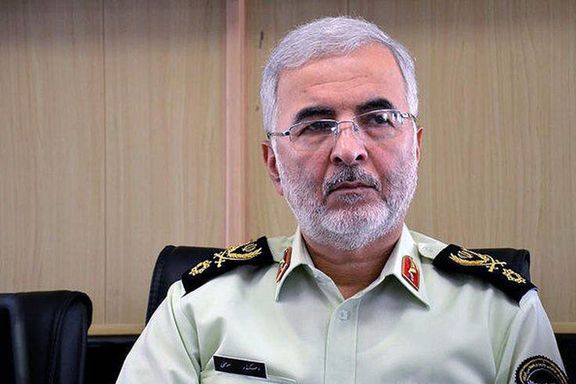Referring to the controversies surrounding Pezeshkian’s cabinet nominations, Ghaempanah emphasized that Brigadier-General Eskandar Momeni was initially reluctant to accept the nomination due to his military background, but he ultimately agreed after persistent requests.
Ghaempanah described Momeni as someone who genuinely "cares" about the country and its people’s problems.
A video of Ghaempanah’s speech, where he becomes emotional while discussing the country’s challenges during a gathering to honor Pharmacology Day on Wednesday, has gone viral on social media.
Momeni is widely believed to be one of at least three cabinet nominees Pezeshkian put forward as a concession to Parliament Speaker Mohammad-Bagher Ghalibaf and his supporters.
Ebrahim Rezaei, spokesman for the Parliament’s National Security and Foreign Policy Committee, announced on Wednesday that the Committee has approved Momeni’s nomination.
Rezaei also mentioned that the Committee has approved Abbas Araghchi, Brigadier-General Aziz Nasirzadeh, and Esmail Khatib, Pezeshkian’s nominees for the ministries of foreign affairs, defense, and intelligence.
All four nominees are aligned with the ‘Principlist’ (right-wing or conservative) camp. According to an unwritten rule, nominees for these sensitive ministries must receive full approval from Supreme Leader Ali Khamenei before cabinet announcements.
Brigadier General Momeni, 62, is a former deputy chief of the Law Enforcement Forces with roots in the Revolutionary Guards. He has served as the Secretary of the Drug Control Taskforce since 2018.
If confirmed, he will be the fourth interior minister with a military background since 2009.
Momeni is the most controversial of the cabinet nominees. Many reformists, concerned about a military figure leading the interior ministry, have opposed his nomination. There were even claims on Tuesday that Pezeshkian was considering replacing him.
Momeni has been widely criticized for his role in crackdowns on anti-government protests in recent years. He has consistently referred to protesters as “rioters” and labeled the protests following the disputed 2009 presidential election as “sedition.”
One of the major grievances among Iranians in recent years has been the interior ministry’s support for the morality police's violent enforcement of hijab rules.
Pezeshkian had criticized these patrols and promised to end them. Critics have pointed out that in April 2018, when Momeni was the acting chief of Police, he asserted that his forces had a “duty to act” on hijab compliance, stating, “We will not fall short.”
The outgoing Minister of Interior, Brigadier-General Ahmad Vahidi, who is the third interior minister with a military background since 2009, is highly unpopular among Iranians due to his insistence on involving the police in hijab enforcement and crackdowns on anti-government protests.
Referring to Vahidi’s record, the Chief Editor of the reformist Sazandegi newspaper, Akbar Montajabi, in a tweet Wednesday argued against Momeni’s nomination. He contended that Vahidi’s insistence on hijab enforcement was very detrimental not only to ‘Principlists’, who lost the elections, but also to the administration of the late President Ebrahim Raisi.







